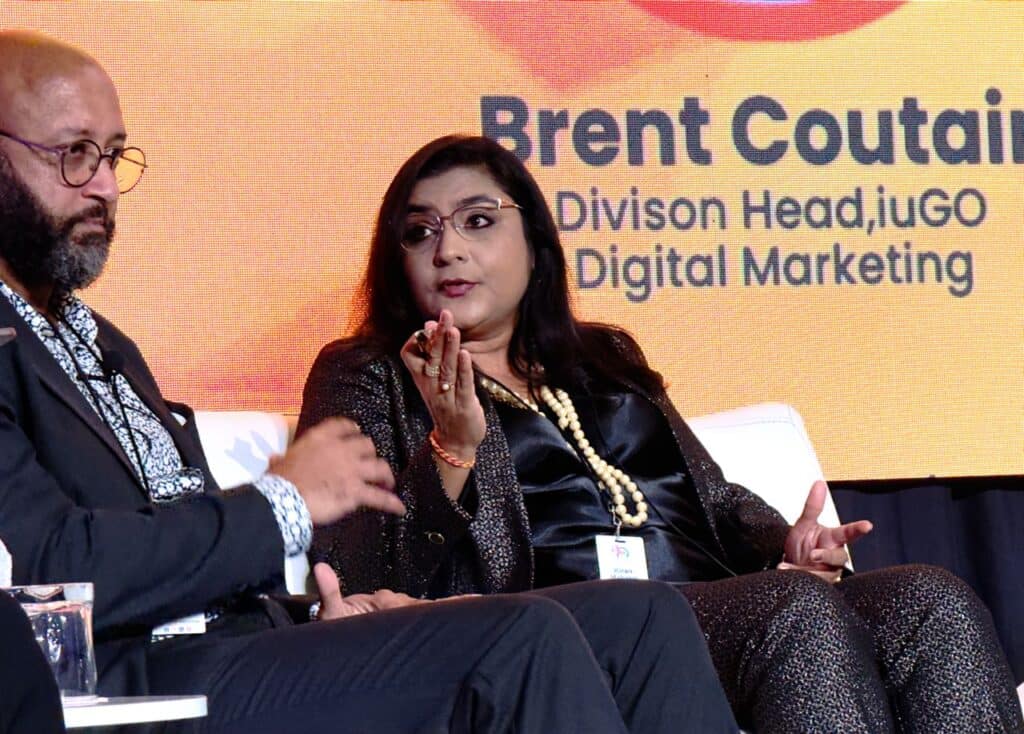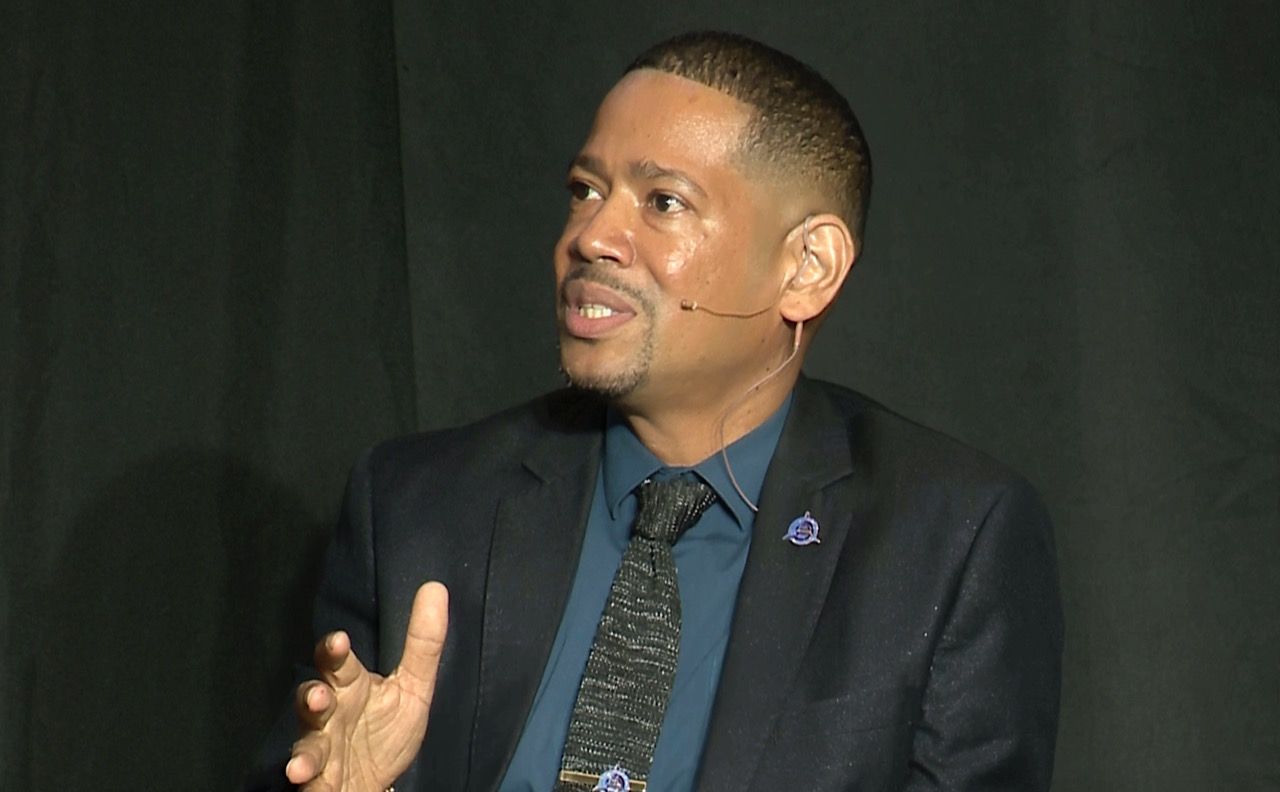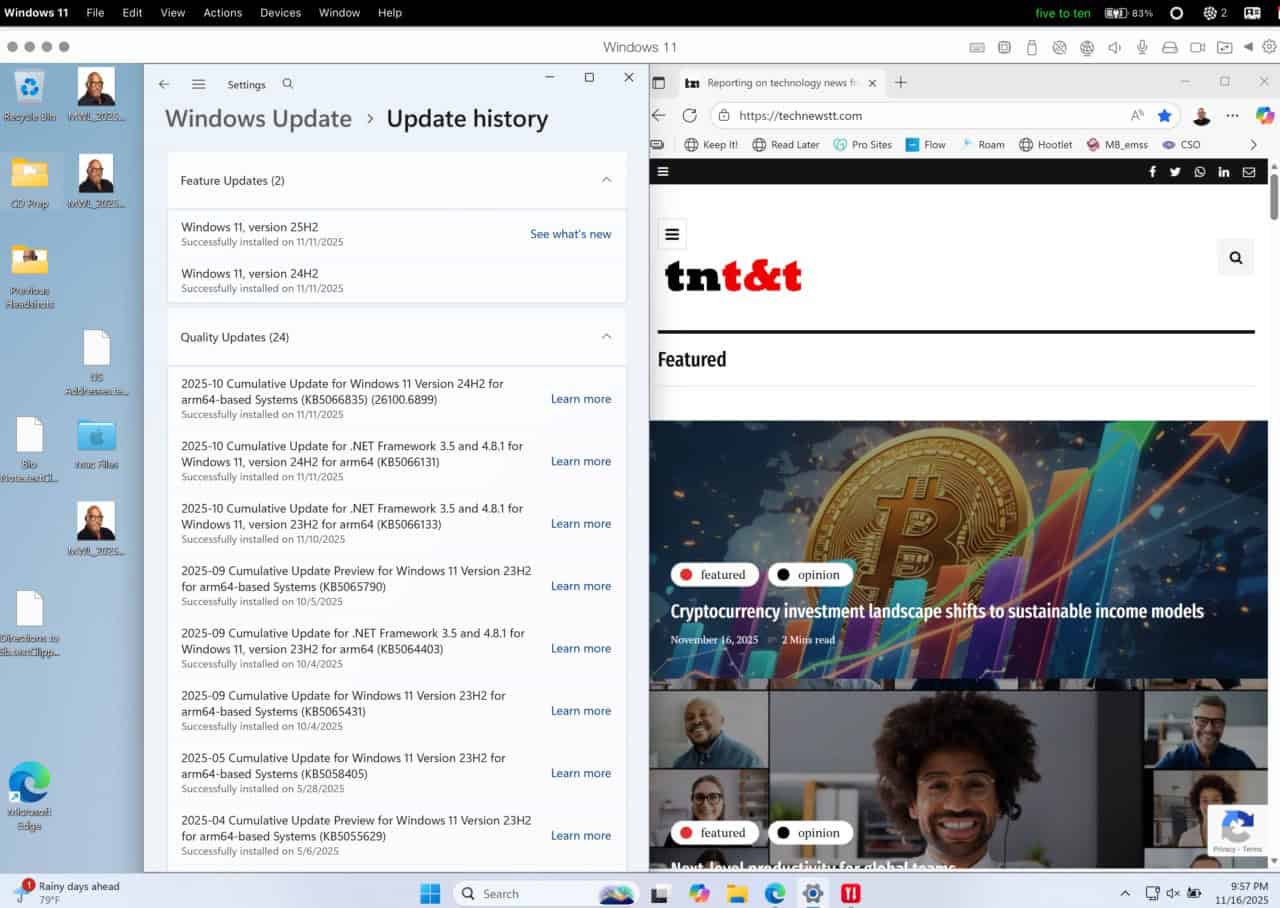
Above: The panel discussion in progress on July 04, 2024. Photographs by Mark Lyndersay.
BitDepth#1466 for July 08, 2024
At Thursday’s seminar hosted by Media Insite, the local media monitoring company, the underpinnings of data analytics were explored as a key tool in building brand perception.
At the panel discussion that formed the core of the event, TTChamber president and media manager Kiran Maharaj recalled her early days in sales at 90.5FM.
“Is what you want three percent [of the market]?” Maharaj said.
“Who is in that three percent? Can I reach the audience and am I doing it effectively? That’s where my career started at 90.5FM. [The station] would play Kishore Kumar, then The Cranberries, then Elvis Presley. I walked around documenting all the why. Why should people listen? Why have you been listening? Why?”
“[In the business] we have moved on from demographics a long time ago. Marketing is now about age and location and gender. We want the insights. Therefore the psychographics (the classification of an audience by psychological traits) becomes important.”
Brent Coutain, division head of digital marketing agency IUGO posed his own questions.
“What is the structure? What are they engaging with from a branch or agency point of view? Are we understanding how to position the product or company?”
“If you are all over the place, the audience will be asking, what is your point here? If you are putting content out that is talking about everything that is not aligned to you, then how am I going to believe you?”
Coutain believes that brands and companies should not wait until there is a problem to shape the character of their communications.
“If there is any grievance at all with your brand, people are going to talk about it. That’s when we should see what people are talking about. Because what tends to happen is some miscommunication.”
“Is this a customer service problem? The customer is putting it to their community, that they are disappointed. How are we fixing it?”
“But when you are not hearing anything at all, that’s when it gets scary, because you have no idea what anybody is thinking. You need to be very clear about who you are talking to.”
Describing the work that Media Insite does for its clients, Operations VP Joe Taylor explained that, “Our simplest level of activity is counting change, that’s what Media Insite does.”
“We count a lot of things, and we do it in some pretty sophisticated way. We provide that raw data, and then we provide a base to visualise it. But the secret sauce is your expertise in your area. You know your business better than we ever could.”
“While we can provide lots of information and we can draw some high level conclusions and analysis and we can offer ways to share out the insights, but you then have to take that information and apply it very specifically to your situation.”
“And it’s also subjective. What looks good for my interest may not actually be promoting your interests. We sit on the outside looking in at the media world as an independent observer.”
Ricqcolia Phillip didn’t see a problem with access to data.
“We have so much data [but] not enough businesses and brands are leveraging it the way that they should. A lot of them [don’t] have an excuse for not knowing how to make informed decisions anymore. There is still a gap in really understanding [how to] leverage it to suit a particular goal.”
And Phillip believes that data is critical to defining the goal of any online marketing or engagement effort.
“What message are you’re trying to put to the audience? Is that messaging and that perception aligned with how they view you? If there’s that misalignment then you won’t be on the same page. There’s going to be a disconnect and people [won’t respond the way you] expect them to.”
“When it comes to the data, the numbers are there, but it also has to work alongside your goals. If you have five particular goals, five objectives, is your strategy aligning with that or are you just putting out content for content’s sake? Just showing up is not enough.”
“There’s a lot of pollution that has been put out and unfortunately we’re seeing a lot more. Less content that is purposeful will answer your brand question fully.”
“If you post five days a week, are those five posts actualising something? Are they fulfilling a particular goal? If it’s not then it’s just missing all time.”
Taylor emphasised the importance of truly understanding the data that analytics provide to a company.
“We don’t really get into advising without being asked, so we wouldn’t say, hey, you should be doing this. We looked at the trends and you guys are missing the boat. We don’t do that.”I’ve looked at various things.”
“I draw my own conclusions, and I actually sometimes wonder does the organisation see this and do they understand what that means? I have to assume that they do, because they’re in a much better position to know.”








































